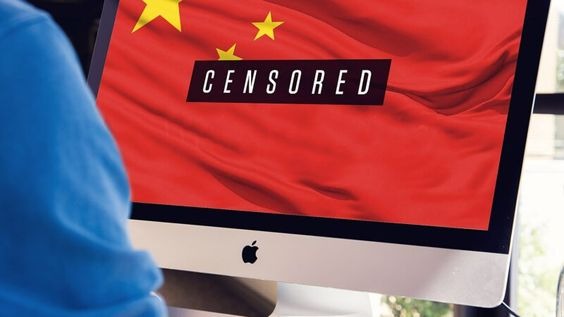
For its many merits, social media has one very powerful disadvantage that seemingly outweighs the good — its ability to mislead. Social media makes it easy to make people believe something about you that may not be true.
Some online influencers are known to share posts that flaunt riches, which might make their followers feel unsuccessful in comparison, leading to many issues. To save its people from this, China has banned “wealth-flaunting” behavior, blocking the accounts of those who have built an identity around it.
What Wealth-Flaunting Means

The term defines conspicuous displays of wealth and luxury for others to see and admire. While it happens naturally in real life, on social media, the effects are amplified, with many creating whole personas around it. It is most common among influencers who deliberately showcase a luxurious lifestyle to attract followers who tend to assume it is an accurate depiction of the user’s real life.
Enter Douyin, China’s Version of TikTok

A Chinese person created TikTok, but the app itself is banned in the country for reasons outsiders can only speculate. Instead, it has Douyin, which can only be found in the app stores of Chinese residents. It functions like TikTok, and some have become big influencers on the app by using wealth-flaunting as a tool to drive traffic. An excellent example of such a creator is Wang Hongquan, who excessively shows off his luxurious lifestyle and properties. However, at least for his regular followers, there is no way to verify his content is authentic.
ALSO READ: Trump Joins TikTok Ahead of November Elections, Amasses Millions of Followers
China’s War on Wealth Flaunting

The department leading China’s war against wealth-flaunting is the Cyberspace Administration of China (CAC), the country’s national internet regulator. It is mainly a regulatory body, but it also maintains a censorship function. In April, they launched a campaign aimed at curbing wealth-flaunting by influencers who use it to gain followers and generate traffic.
Casualties of the War

Wang Hongquan built his reputation via wealth-flaunting, so unsurprisingly, his Douyin account was one of the first to go. Those who attempted to view the page got an error message that revealed that the account had been blocked because it violated “Douyin’s Community Guidelines.” The accounts of other popular influencers, including Bo Gongzi (A.K.A. Young Wealthy Lord Bai), also received the same treatment.
China’s Obsession With Internet Censorship

The country maintains tight control over what goes on over the internet. They don’t joke with their online censorship powers, using them to combat social trends the government deems unfit for public consumption. Wealth-flaunting represents a wasteful lifestyle, and as far as the Chinese government is concerned, it needs to be curbed as it clashes with the social climate it wants to cultivate.
The War Against Wealth-Flaunting Began in 2022

China is taking more drastic steps to curb wealth flaunting, but the war began in 2022 when Chinese officials implemented a code of conduct for online presenters. The code banned livestream presenters from showing off wealth by displaying or “hyping” large volumes of luxury goods and properties, but it wasn’t enough.
POLL—Should the Government Increase Taxes on the Wealthy To Reduce Economic Inequality?
Why China Is Taking Such a Drastic Step

One likely reason the Chinese government is taking the war against wealth-flaunting more seriously now is the state of the country’s economy. Reports claim it is facing an economic slowdown affecting the middle class and young people the most. China’s youths have not been coping well due to a fiercely competitive job market, and those who manage to find jobs are burned out from overworking. In response, many of them have turned to social media as a means of escape, while others use it for content creation, believing it is the only viable career path available to them.
How Wealth-Flaunting Affects Mental Health

Social media’s effects on mental health have been extensively explored and are well documented. It has its merits, but the demerits are far more devastating. Excessive social media use has been known to cause feelings of depression and anxiety, and “wealth-flaunting” tends to amplify this. Seeing exaggerated displays of wealth can easily cause those with less to feel frustrated or unhappy with their accomplishments, which is what the Chinese government wants to protect their people from.
Young People Are the Most Vulnerable

The older generation is somewhat immune to the effects of wealth flaunting as they rarely use social media. However, that’s not the case with the younger generation. The Impact of wealth flaunting could be much more intense for them, especially those struggling with financial independence because of a hyper-competitive job market. It is easy for such people to focus on what influencers display to the detriment of their studies or personal development as they drown in a world disconnected from reality.
Praise for the Government

Some influencers are happy with what the Chinese government is doing, as they also recognize the dangers of wealth-flaunting. A good example is Lyla Lai, a former beauty influencer who was criticized for her sales tactics and lifestyle and has left Douyin. She believes young people are getting misled by “wealth-flaunting” content, which is detrimental to development.
WATCH: Leaked Google Spreadsheet Shows Company’s Staff Salary
Will the Crackdown Work?
There is no doubt that wealth-flaunting can have adverse effects on mental health — especially for young people. In this respect, the crackdown on wealth-flaunting may help. However, it does not solve the main problem: the country’s economic slowdown.

The government needs to focus on creating more job opportunities. After all, if people can find fulfillment in their own lives, the possibility of them being swayed by the distorted psychological comforts of social media lessens.
You Might Also Like:
Kim Zolciak and Kroy Biermann Reach Agreement on Foreclosure
Will the US Succeed in Sending Humans to Mars?
These US States Have the Lowest IQs
Trump Makes U-Turn, Launches Biggest Absentee Ballot Reversal Yet

